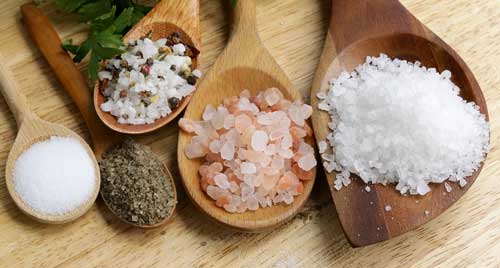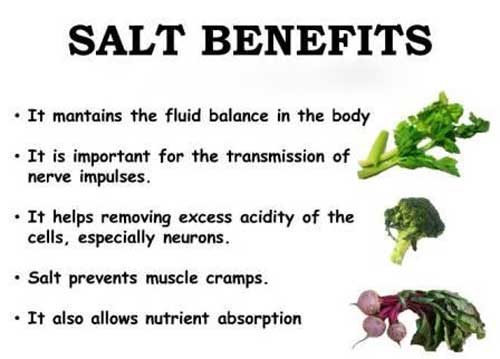Our Pages
ABOUT
- Herbal Medicine
- The Clinic
- Richard Whelan
HERBS
- Alphabetically
CONDITIONS TREATED
- By Group
- Alphabetical
CLINIC INFORMATION
- Clinic Hours
- Clinic Location
CONSTITUTIONAL MEDICINE
- Ancient wisdom in the modern world
|
 Low Salt Diet: maybe not such a good idea...
Low Salt Diet: maybe not such a good idea...
The following article appeared in the Journal Science Daily on May 3rd, 2011.
LOWERING SALT INTAKE SIGNIFICANTLY INCREASES CARDIOVASCULAR RISK*
Low salt intake counterproductive for general population, may benefit some
subgroups of salt sensitive hypertensive individuals
In a study conducted to examine the health
outcomes related to salt intake, as gauged by the amount of sodium excreted
in the urine, lower sodium excretion was associated with an increased risk
of cardiovascular death, while higher sodium excretion did not correspond
with increased risk of hypertension or cardiovascular disease complications,
according to a study in the May 4 issue of JAMA.

 TOP | ARTICLES A-Z TOP | ARTICLES A-Z
"Extrapolations from observational studies and short-term intervention
trials suggest that population-wide moderation of salt intake might reduce
cardiovascular events," according to background information in the article."The assumption that lower salt intake would in the long run lower blood
pressure, to our knowledge, has not yet been confirmed in longitudinal
population-based studies."
Katarzyna Stolarz-Skrzypek, M.D., Ph.D., of the University of Leuven,
Belgium, and colleagues examined the incidence of death, illness and
hypertension in relation to measures of urinary sodium excretion. The study
included 3,681 participants without cardiovascular disease (CVD) at the
beginning of the study. Of these, 2,096 had normal blood pressure at
baseline and 1,499 had blood pressure and sodium excretion measured at
baseline and last follow-up (2005-2008).
The researches found that among 3,681 participants followed up for a median
(midpoint) 7.9 years, cardiovascular deaths decreased across increasing
tertiles (one of three groups) of 24-hour urinary sodium: from 50 deaths in
the low (death rate, 4.1 percent), 24 deaths in the medium, (death rate, 1.9
percent) and 10 deaths in the high tertile (death rate, 0.8 percent).
*Analysis indicated that the risk of cardiovascular mortality was significantly
elevated in the low tertile with a significant inverse association between
cardiovascular mortality and tertile of sodium excretion.* Baseline sodium
excretion predicted neither total mortality nor fatal combined with nonfatal
CVD events.
Among 2,096 participants followed up for 6.5 years, increasing tertiles of
24-hour urinary sodium were not associated with incidence of hypertension.
In the entire hypertension cohort, across increasing tertiles of urinary
sodium, the numbers of new cases of hypertension were 187 (27.0 percent) in
the low, 190 (26.6 percent) in the medium, and 175 (25.4 percent) in the
high sodium excretion group.
Among 1,499 participants followed up for 6.1 years, in
multivariable-adjusted analyses, a 100-mmol increase in sodium excretion was
associated with 1.71 mm Hg increase in systolic blood pressure but no change
in diastolic BP.
The associations between systolic pressure and sodium excretion did not
translate into less morbidity or improved survival. On the contrary, low
sodium excretion predicted higher cardiovascular mortality.* Taken together,
our current findings refute the estimates of computer models of lives saved
and health care costs reduced with lower salt intake. *They do also not
support the current recommendations of a generalized and indiscriminate
reduction of salt intake at the population level. However, they do not
negate the blood pressure-lowering effects of a dietary salt reduction in
hypertensive patients," the authors conclude.

 TOP | ARTICLES A-Z TOP | ARTICLES A-Z
|
|



